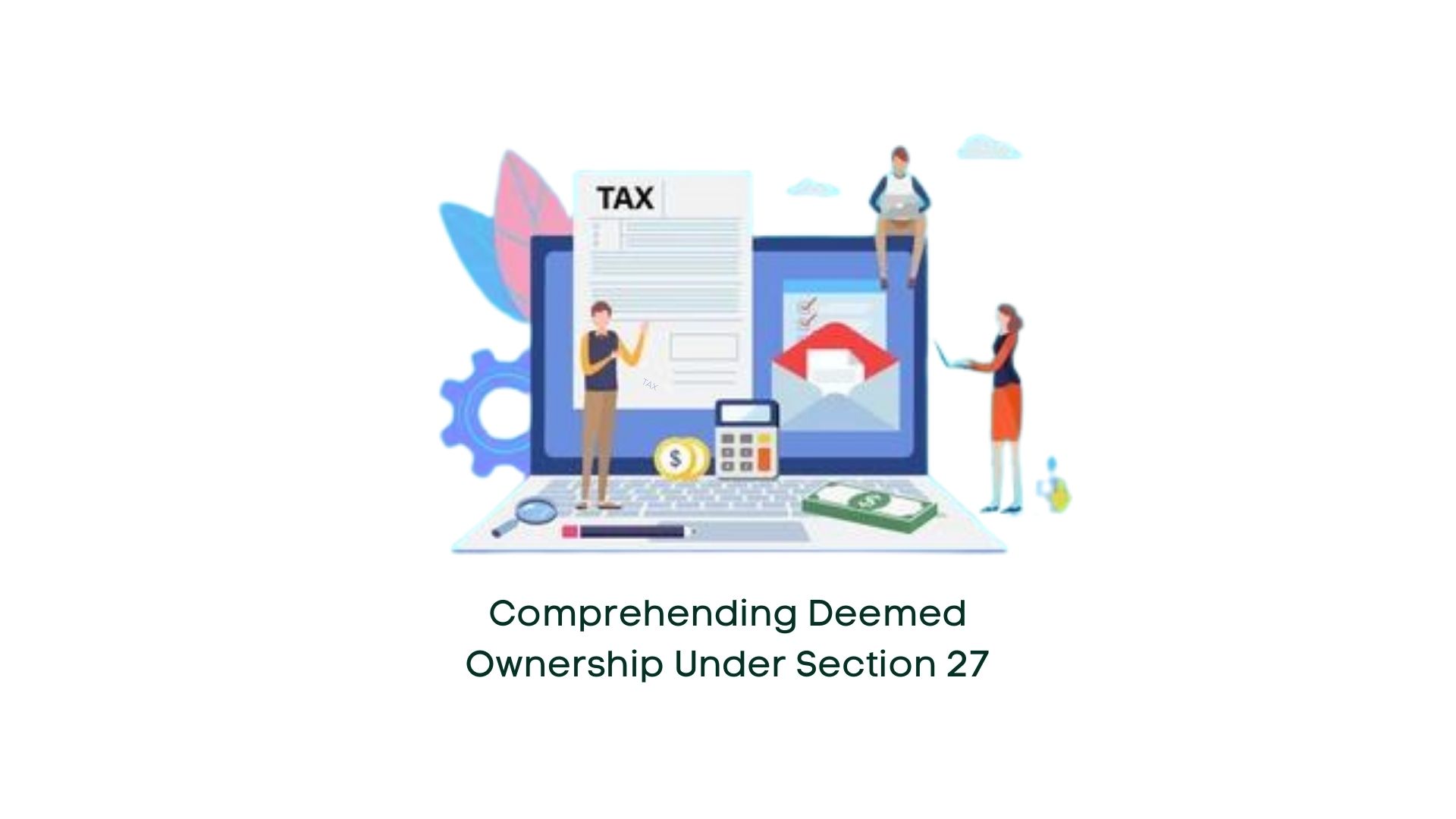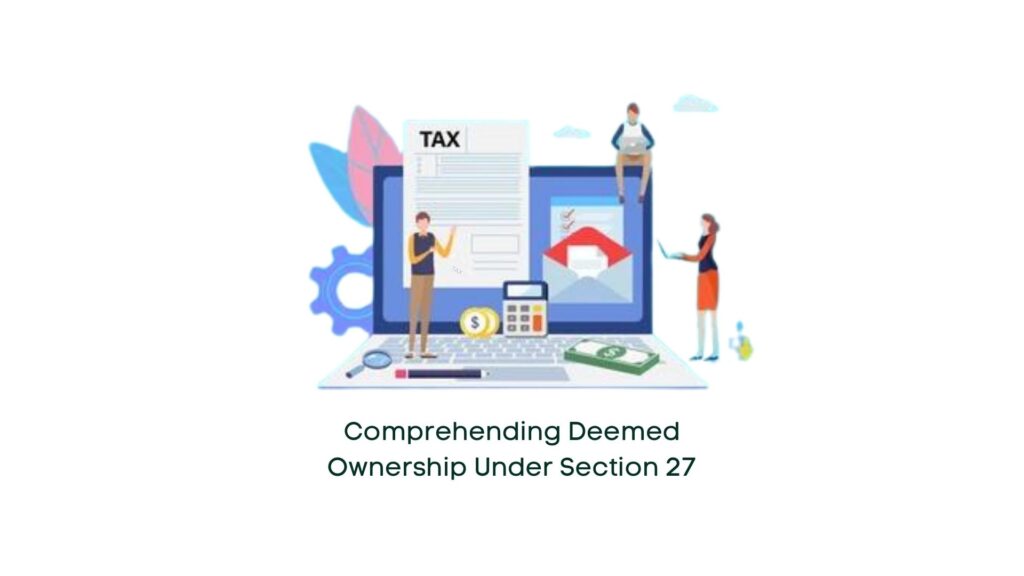
29 Feb Comprehending Deemed Ownership under Section 27

Understanding the concept of deemed ownership under Section 27 of property laws is crucial for individuals navigating property transactions and taxation in India. This legal provision outlines scenarios where individuals are considered owners of property despite not holding legal title. Whether it’s transfers to spouses, possession without registered deeds, or acquisitions through cooperative societies, grasping these nuances is vital for legal compliance and financial planning. In this discussion, we delve into the intricacies of deemed ownership to provide clarity on its implications and applications.
In various circumstances, individuals can be considered the owners of property even if they do not hold legal title. Section 27 delineates instances where this “deemed ownership” applies:
- Transfer to Spouse or Minor Child: When an individual transfers property to their spouse or minor child without adequate consideration (excluding transfers connected to living apart agreements), the transferor is considered the owner. However, if the spouse or minor child purchases a house property from a different asset, the transferor is not deemed the owner. For instance, if Mr. X gifts Rs. 5,00,000 to his wife, who then buys a house property with that amount, Mr. X is not deemed the owner; the income from the property is taxable in his wife's hands.
- Property Allotted by Company/Cooperative Society: Although technically the company/cooperative society may be the legal owner, if property is allotted to shareholders/members, they are deemed the owners.
- Possession without Registered Sale Deed: If a buyer takes possession of a property without registering the sale deed, they are considered the owner. Similarly, if someone is allowed to take or retain possession of a building as part of a contract covered under section 53A of the Transfer of Property Act, 1882, they are deemed the owner.
- Acquisition of Rights in a Building: Individuals who acquire rights (excluding short-term leases) in or with respect to any building, such as through transactions mentioned in section 269UA(f) (e.g., long-term leases or purchases through Power of Attorney), are deemed the owners.
Conclusion:
In conclusion, Section 27’s elucidation of deemed ownership serves as a cornerstone in property law, offering clarity on situations where individuals are regarded as property owners, notwithstanding legal title. From familial transfers to cooperative allotments and possession-based acquisitions, the law encapsulates diverse scenarios to ensure equitable treatment and tax compliance. By understanding these provisions, individuals can make informed decisions, mitigate legal risks, and optimize their financial strategies concerning property transactions. Embracing this comprehension fosters a more robust legal framework and empowers individuals to navigate the complexities of property ownership with confidence and compliance.


No Comments